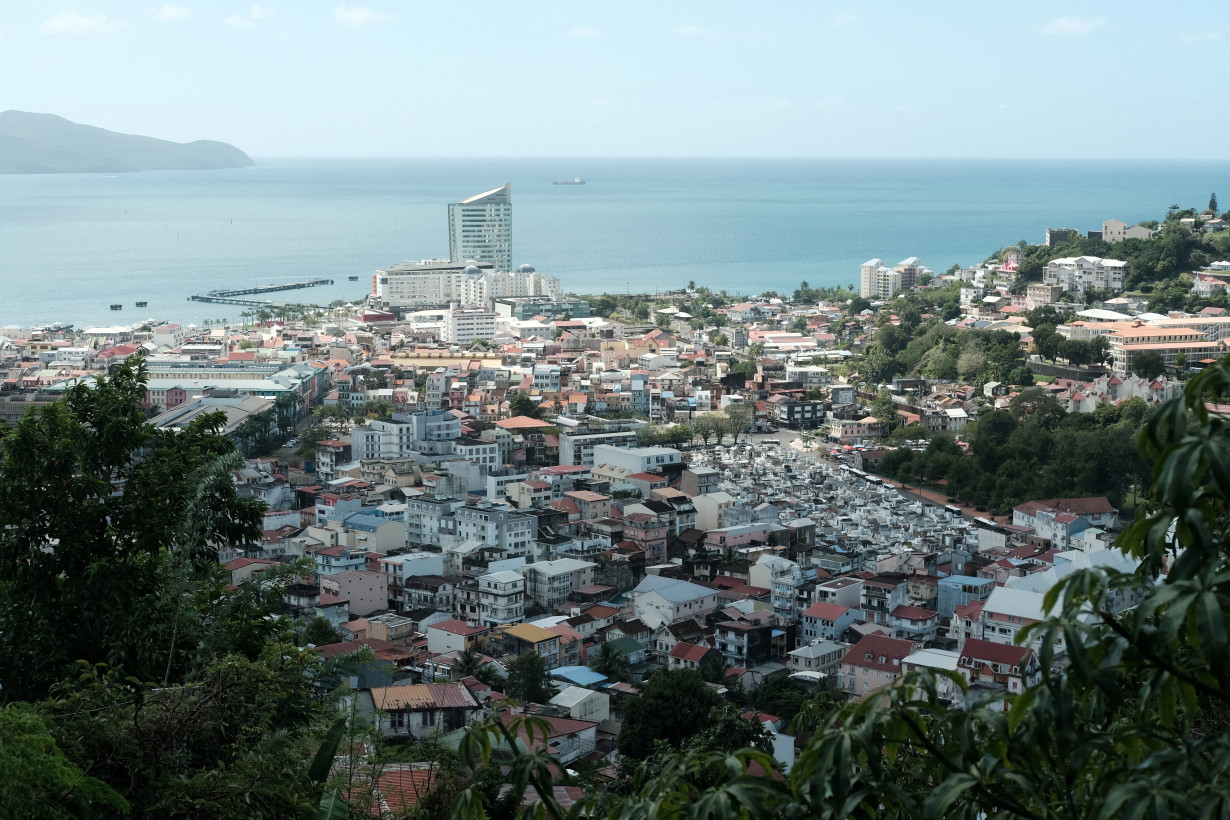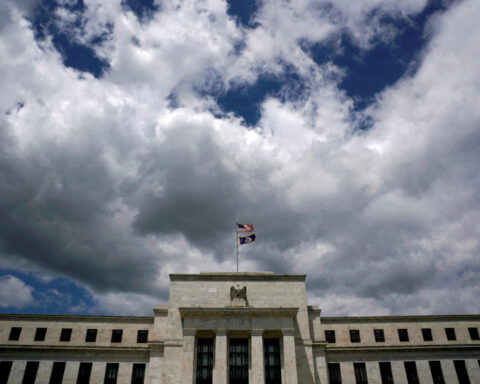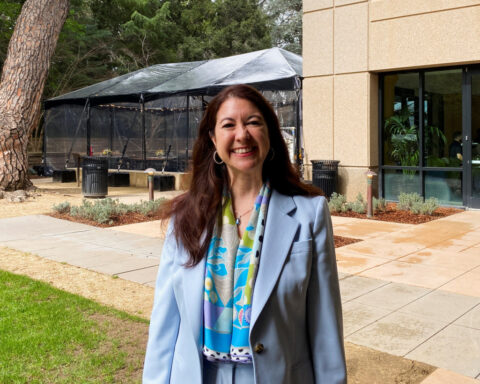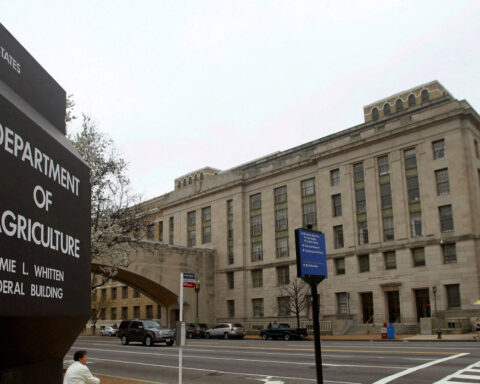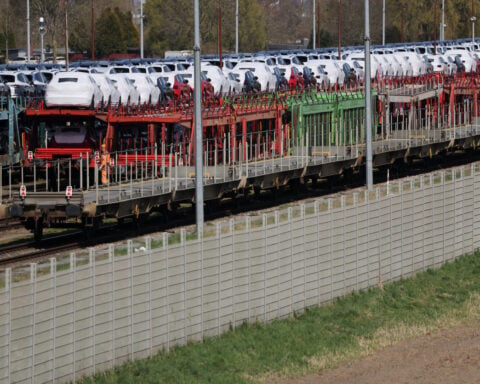By Layli Foroudi
FORT-DE-FRANCE (Reuters) - In Martinique, a French territory in the Caribbean, tourists flock to crystalline waterfalls nestling in the tropical rainforests. But the water that comes out of Christelle Marie-Sainte's tap at home runs yellow.
“I don’t drink the tap water,” she said, outside a supermarket where she was buying locally-bottled Lafort water. A relatively low-cost brand, Lafort is double the price of an equivalent product in parts of Paris.
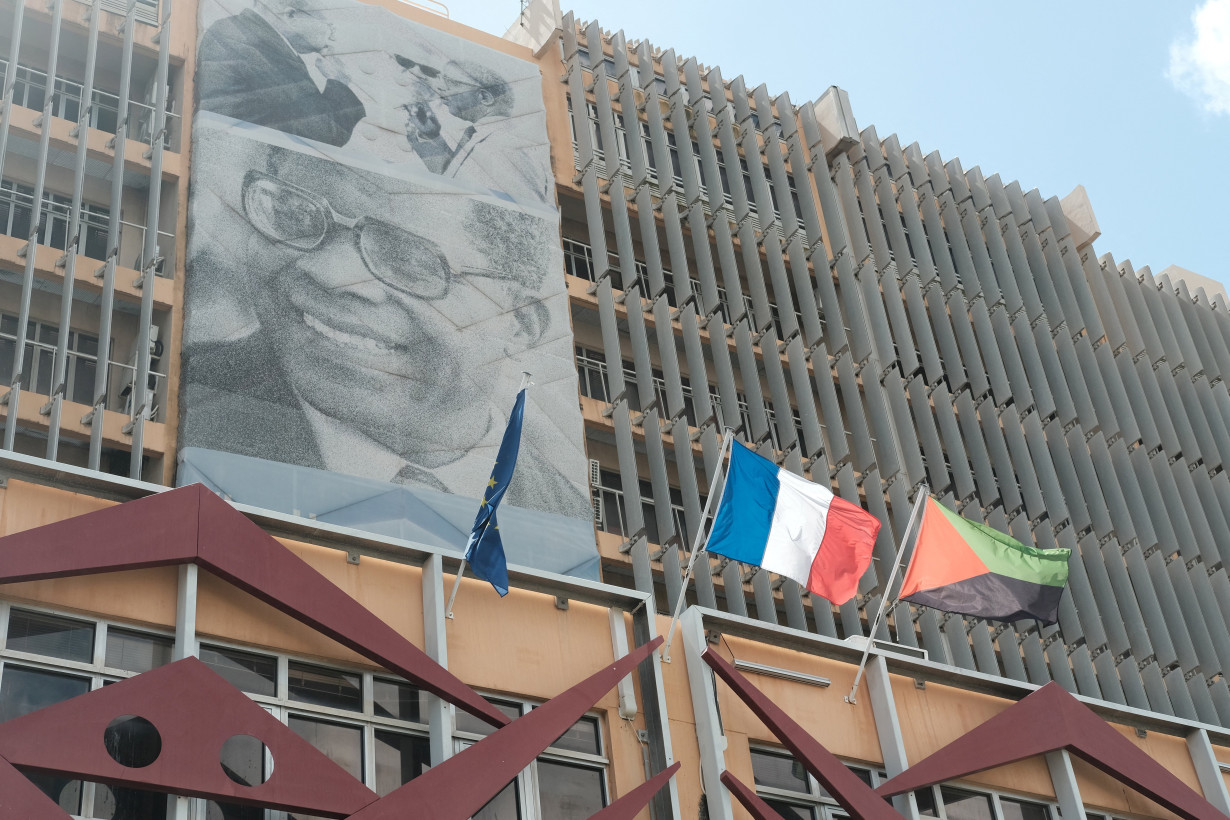
Anger at Martinique’s prices and poor services erupted in months of protests and unrest late last year that saw dozens of businesses targeted and burned. The protests have largely given way to a movement that has won concessions from Paris, including a promise last week of government-backed legislation to tackle grocery prices, which official data shows are on average 40% higher than on the mainland.
Like many contentious issues in Martinique, water is intertwined with questions of class and race, including the prominence of a handful of families descended from white owners of enslaved people.
Known locally as Békés, the white creole families make up about 1% of the population but control swaths of the economy on the island of 350,000 people, the majority of whom are Afro-Caribbean, or descendants of Indian and Chinese indentured labourers.
The government has promised to open up the economy, but activists remain sceptical.
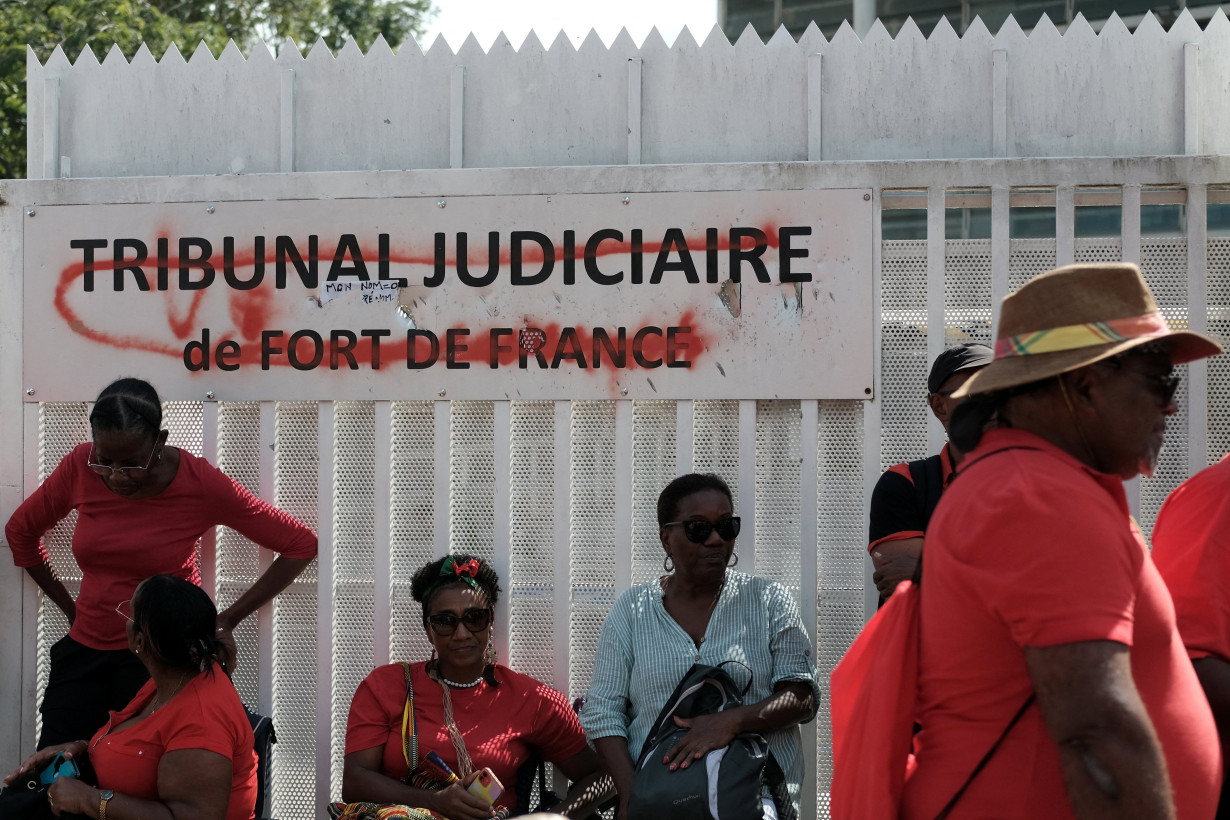
On a visit to Martinique on March 17, Overseas Minister Manuel Valls met with local politicians and business leaders, including Stephane Hayot, son of Martinique’s most successful businessman Bernard Hayot, whose supermarket-to-car dealerships company Groupe Bernard Hayot (GBH) has been a target of protesters’ ire.
Valls called on the businessmen to be more transparent about profits, saying “unfair” supply chains and opacity stifled the economy. He said the government would soon pass a law to fight anti-competitive practices, building on two bills already in parliament.
Activists, some of whom call for independence, say more must be done. They are planning new protests around a trial next week against three protesters.
Valls’ words “need to be followed by concrete, efficient and sustainable action,” said Gwladys Roger, a leader of the movement, Gathering for the Protection of Afro-Caribbean People and Resources (RPPRAC), which has led the protests, where placards with images of water bottles and prices have featured.
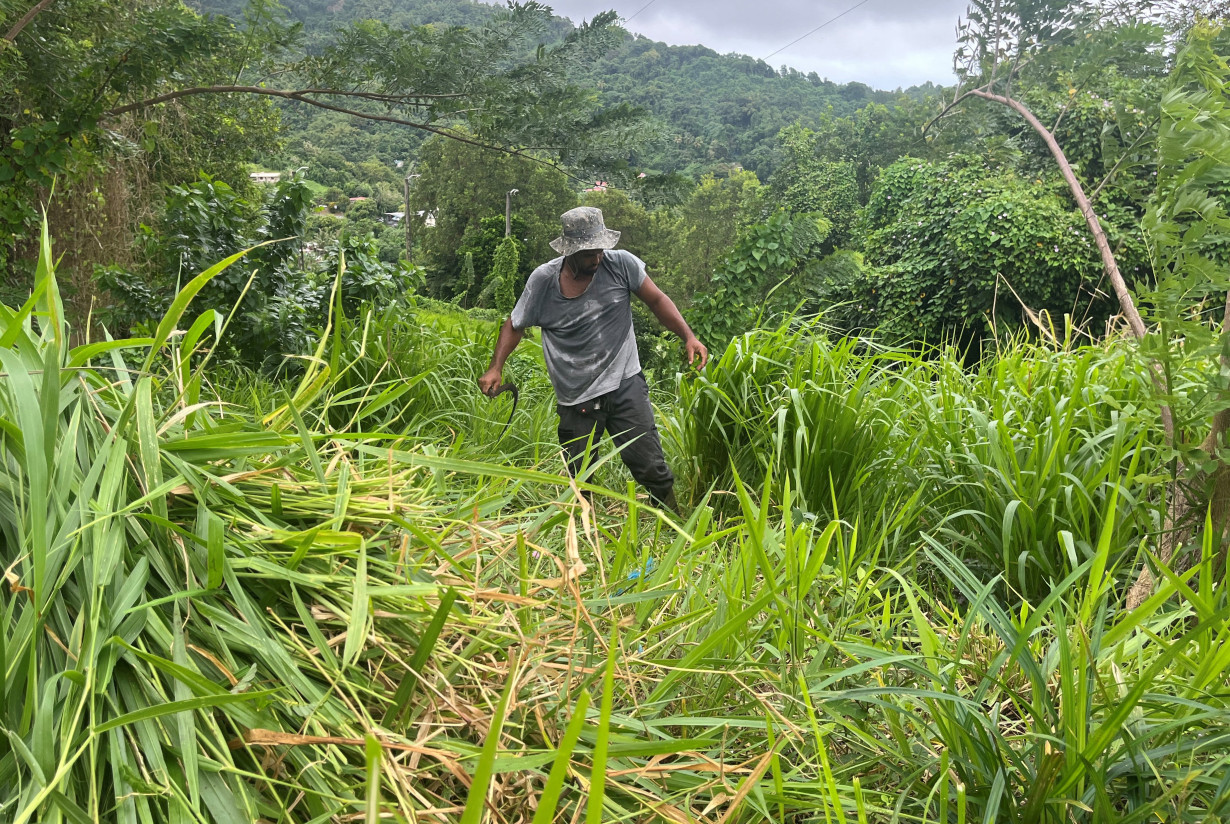
GBH recently published consolidated annual accounts for the first time after a lawsuit by activists. In reply to questions from Reuters, Nicolas Assier de Pompignan, a GBH director, said the company published accounts because "times had changed" and there was pressure for transparency. He said there was "healthy competition" in Martinique and that GBH was surprised by Valls' comments.
The regional government led by Serge Letchimy is drawing up a wide-ranging bill to reduce reliance on imports by giving small farmers access to more land. It also seeks to centralise water management to lower prices and encourage investment, Letchimy’s office said.
“We need significant tax reforms, property reforms,” Letchimy told Reuters.
More than 80% of the food on Martinique is imported, mostly from France.
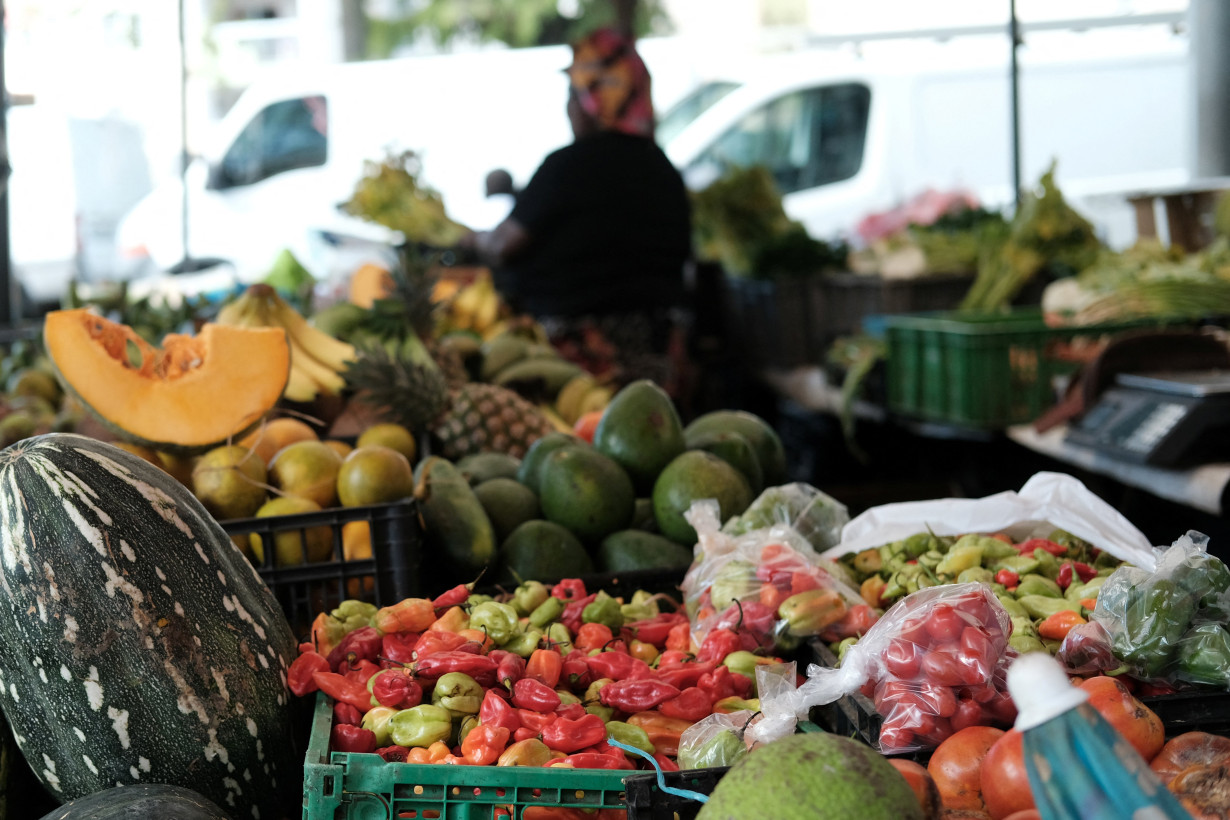
Farmer Jerrick Venitus rears animals and grows fruit and vegetables for local markets. He called the current system a “colonial pact.”
Almost half the farmland is planted with sugar for rum or bananas for export, a situation encouraged by European subsidies.
The banana, sugarcane and rum industries in 2023 received 161.5 million euros in support, a Reuters tally of French government accounts shows, representing 80% of all agricultural subsidy programs for Martinique. Venitus has yet to receive a 145,000 euro subsidy he applied for three years ago.
“We need to redistribute the cards and prioritise those producing for the local market,” Venitus said, in his banana fields.
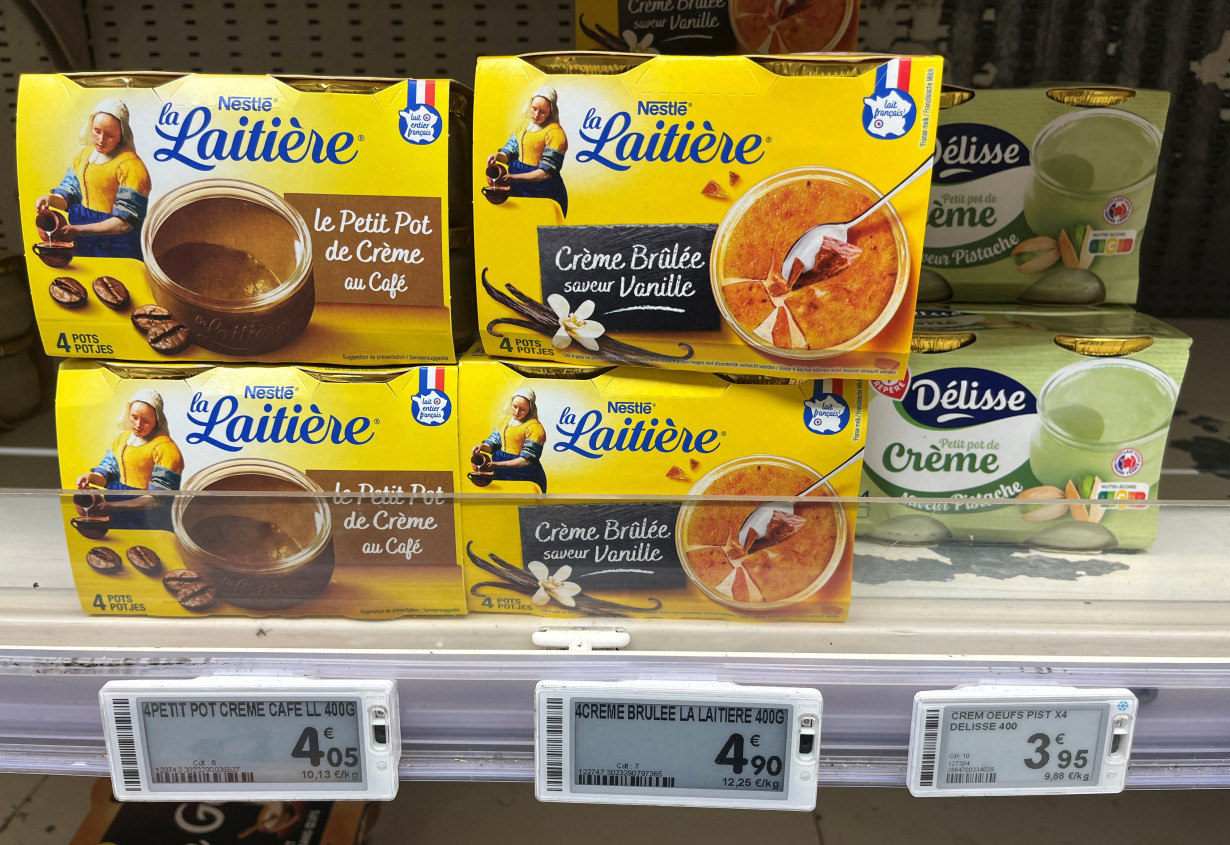
Discontent in French overseas territories is not unique to Martinique.
In the Pacific Ocean archipelago New Caledonia, an attempt to reduce the voting weight of indigenous Kanak people brought deadly unrest in May. In December, a cyclone devastated the Indian Ocean archipelago of Mayotte, near East Africa, killing 39 and highlighting poor living conditions.
In response to a request for comment, the French overseas ministry referred Reuters to Valls’ speeches. The Elysee did not respond to a request for comment.
WATER POOR
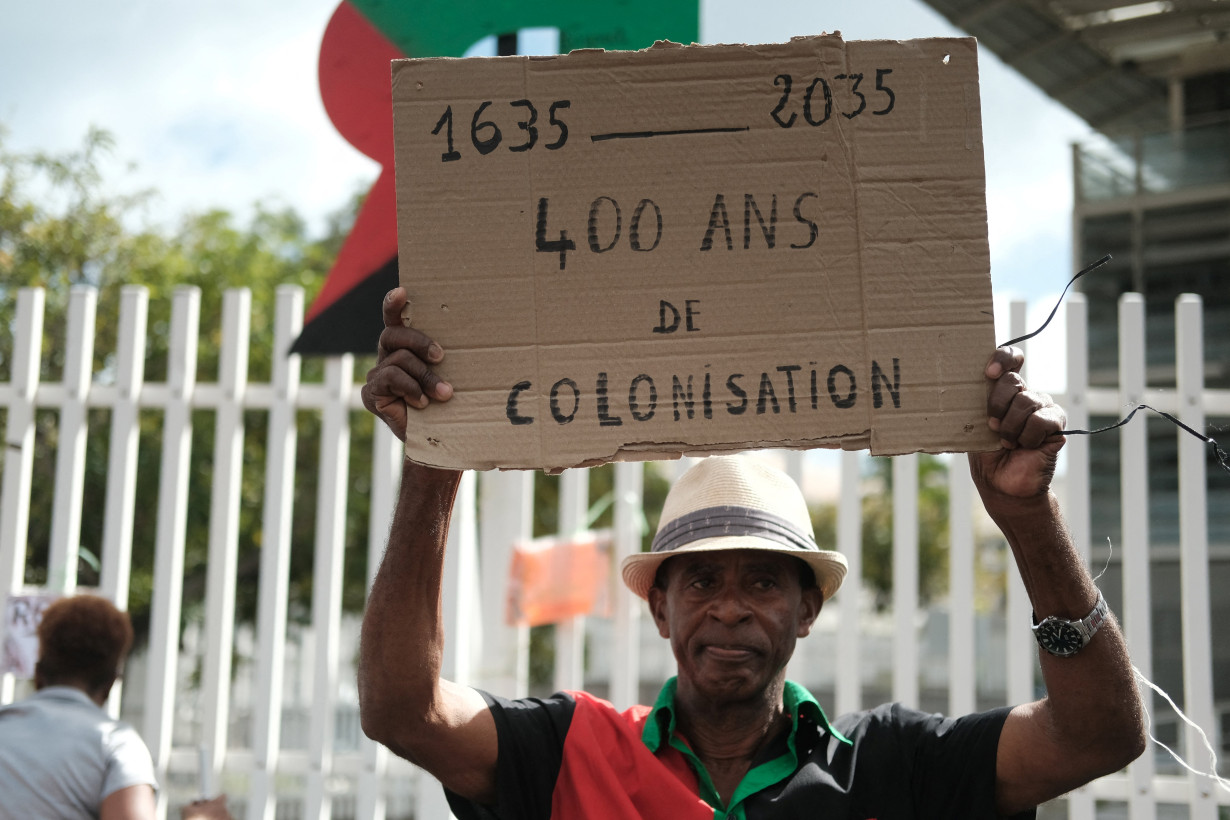
Martinique, which France colonised in 1635, became a department of the Republic in 1946. Its social indicators still trail the mainland.
More than a quarter of people are poor, a higher rate than in many Caribbean islands and twice that of mainland France.
Around half the households are “water poor” under U.N. guidelines, spending more than 3% of income on water bills, according to a 2017 report by France’s sustainable development body. Tap water costs on average 28% more per cubic metre than in mainland France, government data shows.
“They make us pay for tap water as if it is drinkable, when it is not,” said Roger, one of the activists on trial for entering the governor’s residence in November at the height of the protests.
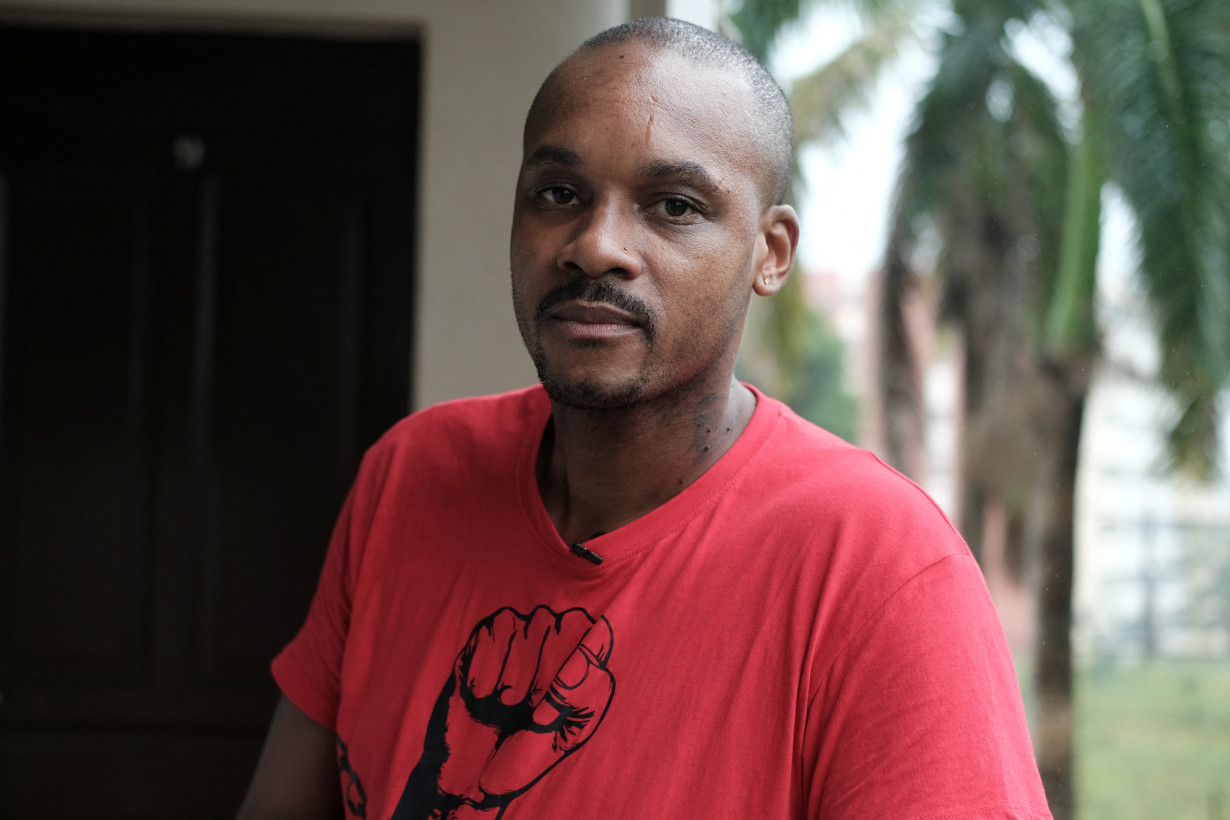
Drinking water in most towns in Martinique is within bacterial and chemical norms, but does not always meet quality standards, with high chlorine levels and a bad smell and taste noted in some towns, a health ministry database shows.
Benoit Vittecoq, director for the French geological survey in Martinique, blamed discoloured water on old piping and a lack of maintenance. Leaks also contribute to regular outages, he said.
Water cuts, sometimes lasting for days, further increase costs for people by pushing them to buy bottled water.
The distrust of mains water is compounded by fears related to 1980s and 1990s pesticide pollution from plantations that grew bananas for export.
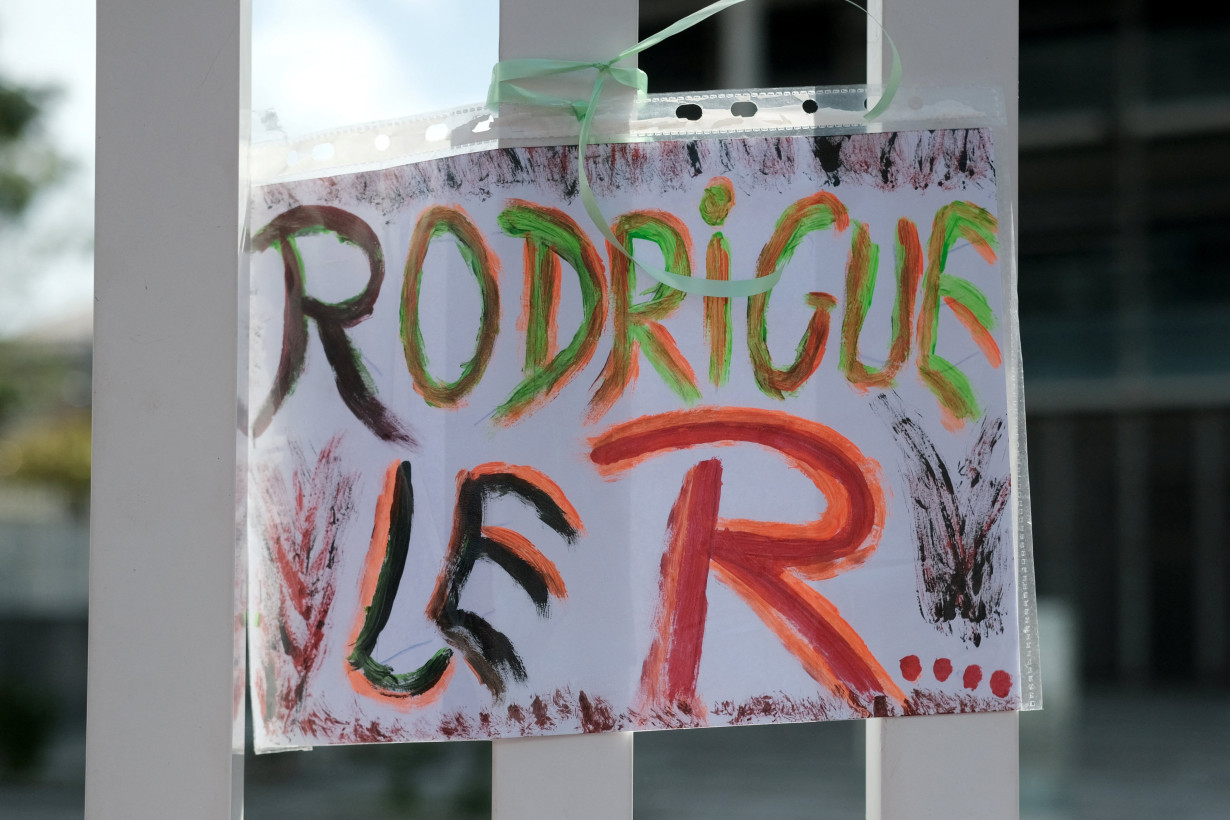
French health authorities found a "strong presumption of a link" between exposure to the pesticide and the risk of developing prostate cancer. Nearby Guadeloupe and Martinique had the world's first and third highest rates of prostate cancer in 2022, according to the World Cancer Research Fund.
HIGH PRICES
Some are satisfied with the status quo. Nicolas Etile, a restaurateur in Martinique’s capital Fort-de-France, said prices were naturally high because of the distance from France, while benefits and subsidies helped living standards.
Not all price differences can be explained by transport costs, however.
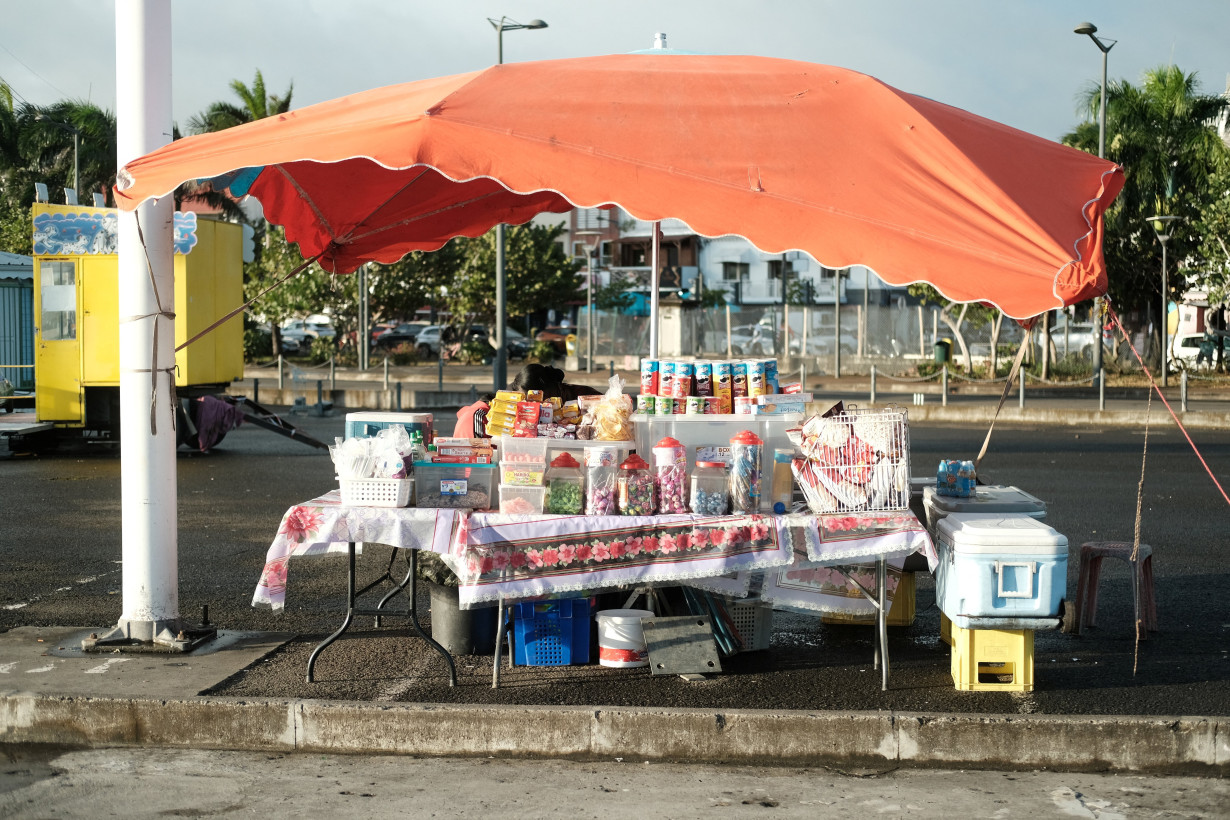
Marie-Sainte’s packs of Lafort were bottled a few miles from the supermarket.
Each pack of six 1.5 litre bottles cost 3.85 euros. An equivalent in the Paris region costs 1.50 euros at the same E.Leclerc supermarket, E.Leclerc’s website shows. A pack of imported Evian cost 11.99 euros at Carrefour, compared to 3.66 euros on the mainland.
Groupe Parfait, which has the local E.Leclerc franchise, did not respond to requests for comment. GBH, which has the Carrefour franchise, said local bottlers' small scale raised costs, along with the cost of imported plastic bottles, machinery and taxes. Evian was expensive because of transport costs, GBH said.
The company that bottles Lafort, along with another water brand Chanflor, is run by Bertrand Clerc, whose family has a long history on the island.
Clerc is descended from 19th-century enslaver Honore Marie Clerc, according to a review of birth registries, obituaries, French genealogy website Geneanet and France's publicly funded REPAIRS database.
Like many Béké families, the Clercs were compensated for the abolition of slavery. Members of the family were awarded around 75,000 francs in 1849, a Reuters tally of archives on the REPAIRS database shows.
Clerc declined an interview request and did not respond to questions.
Many in Martinique link such payments to white creole families's success. Some are calling for reparations.
Adelaide Marine-Gougeon, a researcher of white creoles in Martinique at Paris’ Sorbonne University, said compensation was among a range of economic advantages that gave settlers a head start over former enslaved people after abolition, along with their connections to Europe and the Americas and marriage alliances.
Marcellin Nadeau, a national legislator, said there needed to be discussion about slavery reparations, possibly in the form of student bursaries or job opportunities.
If not, “tensions in society will get worse,” he told Reuters.
Emmanuel de Reynal, whose association “Tous Creoles” seeks to build bridges between Martinique’s communities, estimated only 50 of roughly 3,000 white creoles were “very rich.”
“They are business people. It is not wealth from the heritage of slavery,” said de Reynal, who is of Béké descent. GBH's Assier de Pompignan said Hayot was planning a monument to the crime of slavery and any reparations should be symbolic. He said the company's success was not related to "this history."
BANANA TRAGEDY
Bernard Hayot’s late brother Yves Hayot imported the toxic pesticide chlordecone, widely used to fight weevils on banana plantations in Martinique and Guadeloupe. France banned the chemical on the mainland in 1990 but allowed it on the islands until 1993, according to parliamentary documents. The United States banned it in the 1970s.
The French government's human health research organisation concluded in 2017 that almost the entire population of Martinique and Guadeloupe had been contaminated by exposure to the pesticide through its presence in the soil and food.
Yves Hayot died in 2017. GBH's Assier de Pompignan declined to comment.
Hayot, who also used chlordecone on his own plantations, had been unaware of the dangers, one of his former executives told a parliamentary inquiry in 2019. The executive said the French government was at fault for allowing the chemical.
In 2023, a French court outraged activists by throwing out a case seeking compensation for victims, after investigative judges said too much time had passed.
Lawyer Christophe Leguevaques told Reuters he was preparing an appeal. A separate administrative court ruling in March ordered the state to compensate 11 individuals who developed prostate cancer or had multiple miscarriages after exposure to chlordecone.
The low level of the compensation, set at between 5,000 and 10,000 euros, angered some.
“It mocks the people of Martinique and Guadeloupe,” said Guilaine Sabine, an activist with the collective Zero Chlordecone, Zero Poison.
Two of 35 water sources in Martinique present traces of chlordecone, the local health authority says. Soil, river water, the marine environment, and spring water are contaminated in areas where the pesticide was used, according to the French health and safety agency.
Census agent Marie-Sainte, like many on the island, feels helpless about chlordecone pollution. Buying her bottled water, she said she preferred to put it out of her mind.
“I don’t want to know,” she said.
(This story has been corrected to fix a typo in paragraph 10)
(Reporting by Layli Foroudi in Martinique; Additional reporting by Lucien Libert in Paris; Editing by Kat Stafford and Frank Jack Daniel)

 Trump has begun another trade war. Here's a timeline of how we got here
Trump has begun another trade war. Here's a timeline of how we got here
 Canada's leader laments lost friendship with US in town that sheltered stranded Americans after 9/11
Canada's leader laments lost friendship with US in town that sheltered stranded Americans after 9/11
 Chinese EV giant BYD's fourth-quarter profit leaps 73%
Chinese EV giant BYD's fourth-quarter profit leaps 73%
 You're an American in another land? Prepare to talk about the why and how of Trump 2.0
You're an American in another land? Prepare to talk about the why and how of Trump 2.0
 Chalk talk: Star power, top teams and No. 5 seeds headline the women's March Madness Sweet 16
Chalk talk: Star power, top teams and No. 5 seeds headline the women's March Madness Sweet 16
 Purdue returns to Sweet 16 with 76-62 win over McNeese in March Madness
Purdue returns to Sweet 16 with 76-62 win over McNeese in March Madness
